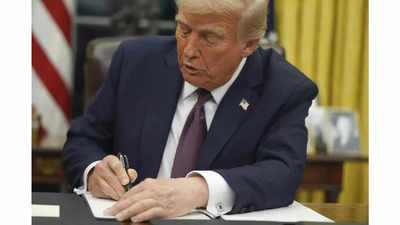Donald Trump began his second term as the US President with a flurry of major executive orders and directives. One such executive order he signed was to end Birthright Citizenship for children born in the US. The order will take effect 30 days from the date of issue, i.e. February 19, 2025. Here’s a detailed breakdown of what the change in Birthright Citizenship rule means and how it impacts Indians living, studying and working in the US, including H-1B visa holders.
What is Birthright Citizenship
The principle of Birthright Citizenship originates from the 14th Amendment of the US Constitution, adopted in 1868.It says “All persons born or naturalized in the United States and subject to the jurisdiction thereof, are citizens of the United States and of the State wherein they reside.”
Trump’s executive order challenges this interpretation by stating that the amendment was never intended to apply universally to all individuals born in the US. Under the new order, children born in the US to parents who are present in the country on temporary visas and are not a US citizen, will no longer automatically gain US citizenship.
Indians in the US impacted by the change in Birthright Citizenship rule
The change in Birthright Citizenship rule impacts Indians (both mother and father) on the following visas:
- H-1B (specialty occupation workers)
- H-4 (dependents of H-1B), F-1 (students)
- J-1 (exchange visitors)
- L-1 (intra-company transferees)
- L-2 (dependents of L-1)
- B-1 (business visitors)
- B-2 (tourists)
- O-1 (extraordinary ability)
- P-1 (athletes and entertainers)
- TN (NAFTA professionals)
Exception to the Birthright Citizenship rule
However, if one of the parents is a US citizen or a lawful permanent resident, the children born will still automatically get US citizenship. Children born under these circumstances might still have alternative pathways to citizenship, such as being sponsored by a parent who later obtains US citizenship or permanent residency.
While the executive order does not directly affect existing green card holders, it may impact the future applicants. It may indirectly influence decisions for families seeking permanent residency.
When the new Birthright Citizenship policy takes place
The new executive order will come into effect 30 days after its issuance on January 20, 2025. This means that it is applicable to children born on or after February 19, 2025.
Are H1-B visa holders impacted by the new Birthright Citizenship policy
Yes, the new Birthright Citizenship policy is expected to significantly impact H1-B visa holders. Children born in the US to parents on H-1B visas will not automatically acquire US citizenship under the new policy.




